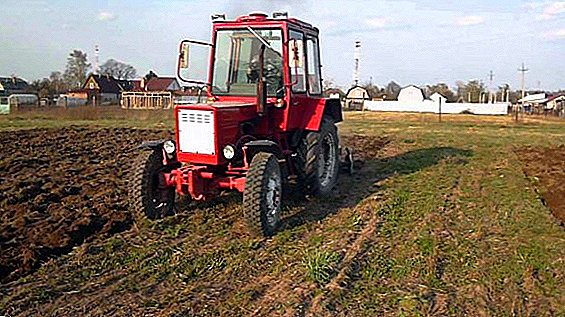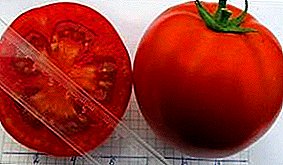
To save their potatoes and eggplants from the Colorado potato beetle, it is not necessary to kill him.
Quite possibly just scare away insects.
This will help ordinary mustard powder., the taste and smell of which the voracious pest can not stand.
general information
Almost universal folk remedy. It works effectively not only against the Colorado beetles., but also many other pests.
Wherein mustard is absolutely harmless to the environment and most of its inhabitants.
Release form
Dry powder, packaged in paper or plastic bags. Weight may vary.
Chemical composition
Mustard seed seeds pounded to the consistency of dust. They contain flavonoids and essential oilwith a sharp characteristic odor.
The mechanism and duration of action
 How to poison the Colorado potato beetle with mustard? You need to know that mustard is by no means does not kill pests. Its action is based on the smell that is unpleasant for insects, which acts as a repellent.
How to poison the Colorado potato beetle with mustard? You need to know that mustard is by no means does not kill pests. Its action is based on the smell that is unpleasant for insects, which acts as a repellent.
In addition, the gnawing Colorado beetles and their larvae bitter and spicy mustard leaves are not to your taste.
They try to find more delicious food that smells of familiar and favorite flavors.
How to get rid of the pest? If you sow mustard between the rows of potatoes, plants will be able to scare the wireworm and larvae of the Colorado potato beetle, while creating excellent conditions for the life of earthworms.
Under favorable weather conditions, mustard can actively work for quite some time. The service life is guaranteed to be up to 4 days.
Compatibility with other drugs
Mustard powder can be combined practically with any chemical, biological and folk remedies.
When to apply?
Mustard powder and solution do not use before and during rain or hail, in conditions of high humidity in the form of fogs, strong growth, after heavy rain.
Also there should be no windespecially strong. The activity of the sun does not matter.
It is recommended to use mustard in the morning or afternoon, while the larvae and beetles lively feed.
How to prepare a solution?
 There are several possible solutions (we keep the proportions!):
There are several possible solutions (we keep the proportions!):
- The recipe is simple: 2-3 full tablespoons of powder with riding, pour cool water (1-2 liters) and leave alone for 2 days to get an infusion. Then the mixture is poured into a bucket with 8 liters of water, thoroughly stirred until a homogeneous solution.
- To speed up cooking mustard powder can be brewed in boiling water. Then the solution can be used after a day.
- Suspension preparation requires double mustard (5-6 tablespoons). How much is a gram: about 100-120 g.
To increase efficiency you can add to the mustard solution:
- about 50 g of soap. It must be completely dissolved in water. Add immediately before use;
- Vinegar 9% concentration - 100-150 ml. It enhances repellent abilities.
Mode of application
 The fight against the Colorado potato beetle includes the whole 3 methods of using mustard powder:
The fight against the Colorado potato beetle includes the whole 3 methods of using mustard powder:
- Spraying potato Filtered solution spray ground parts of affected plants, very carefully and evenly wetting all available surfaces. The solution should not flow down to the ground. Lipophilicity can be increased by adding liquid soap (20-30 ml).
- Spilling soil. More concentrated suspension shed the soil under the bushes and between the rows. In this way, several hares are killed at once — they get rid of beetles and larvae, expel wireworms and possible naked slugs.
- Potato processing (dusting) dry powder. They process not only the bushes of plants, but also the soil around.
Toxicity
Dry mustard does not accumulate in plants and in the soil.
Absolutely safe for beneficial insects and the environment.












